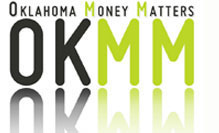Financial Literacy Standards
8. Interest, credit cards and online commerce
Achieving financial literacy is more vital than ever, requiring a
strong grasp of how money can work to your advantage. This
includes navigating interest rates, managing credit cards
responsibly, and engaging safely with online commerce.

Section 1: Costs and benefits of using credit cards
A. How interest rates and fees impact the cost of using credit cards
Costs:
When using a credit card, interest is the fee you pay for borrowing money from the credit card company. If you do not pay your balance in full by the end of your card’s billing cycle, the amount you owe will be charged interest until you pay back the debt completely.
Types of rates and fees you may be charged:
- Fixed vs Variable: These are the two main kinds of credit card interest rates.
- A fixed rate: Fixed rates will remain relatively constant. The rate might change, but you should expect notification before any modifications.
- A variable interest rate: This type of rate is tied to an industry benchmark and could fluctuate based on what that benchmark is recommending.
- Purchase rates: These rates apply to purchases made with a card that carry over into a new billing cycle. Nearly all cards will have a purchase APR (Annual Percentage Rate).
- Balance transfer rates: These apply when you move a balance from one account to another. The rates can differ based on the accounts involved, so make sure to pay attention when doing this.
- Penalty rates: These are incurred when a cardholder fails to make the minimum payments on time. These rates can be pretty steep, so it’s important to know what your card’s penalty rates are.
- Promotional rates: Some cards may provide temporary APR rates to encourage cardholders to use cards that have been sitting idle. Once the promotion ends, they revert to the standard APR, so be careful when taking advantage of these deals.
When are you charged interest on a credit card?
If you have not paid off your balance by the due date each month, you will be charged interest on any unpaid balance remaining on your card. Interest will accrue if you continue to let it roll over month to month. The only true way to avoid interest payments is to pay off your balance before the due date each month.
Benefits:
If you're considering getting a credit card to enhance your credit and secure your financial future, it's wise to understand what they are, how they work, and the advantages and disadvantages of using them. They can be an excellent tool if you manage them properly. One of the biggest benefits of having a credit card is that it helps you improve your credit score, which is a number that indicates how reliable you are with credit. This score, typically ranging from 300 to 850, is based on the information in your credit report, which includes your credit history, any debts you have, your payment history, and other financial behaviors. The higher your score, the better your credit profile appears to lenders. To use a credit card effectively to enhance your credit rating, be sure to pay off your purchases on time, every month.

B. Options for payment plans
- Minimum payment: Most credit cards have a minimum payment amount required each billing cycle. This is usually a percentage of your outstanding balance, plus any interest and fees. The exact calculation varies by card issuer. To find out the minimum payment for your card, consult your monthly statement or contact your credit card company directly.
- Delayed payments (Forbearance): Some credit card companies offer temporary relief programs, often called emergency forbearance or hardship programs. If you qualify, you might be able to pause or reduce your payments for a specified period, typically several months. However, interest may continue to accrue during forbearance, potentially leading to a larger balance and higher payments after the forbearance period ends. You'll need to reach out to your credit card company and explain your situation to see if you qualify for these programs.
- Paying in full: If possible, paying off your credit card balance in full monthly will prohibit you from paying interest or fees. The benefits of paying your full balance each month include:
- Avoid interest charges
- Maintain a strong credit score
- Stay out of debt
- Maximize rewards
- Improve financial discipline
- Avoid late fees and penalties
If you're facing overdue credit card payments, several options can help you get back on track. Your first step should be to pause all spending on the card to prevent further balance increases and interest accrual.
Here are some approaches to consider:
Section 2: Advantages and disadvantages of online commerce
- Shop Smart – Always check that the websites you visit are trustworthy and that the sellers are legit.
- If It Sounds Too Good to Be True – It probably is! Make sure to verify any amazing deals before you make a purchase. There might be hidden charges you didn’t see coming.
- Keep Your Passwords Safe – Many online stores will ask you to create an account. If you do, ensure you’re using strong password practices.
- Save Your Receipts – In-store purchases often present fewer issues than online shopping. To safeguard against potential problems, it's wise to retain your receipts and tracking information for any purchases.
- What to Do If You Get Scammed – Even if you’re super cautious, scams can still happen. If you think you’ve been scammed or are a victim of identity theft or fraud, make sure to report it to the right authorities.
Online commerce offers the convenience of shopping anytime from anywhere, access to a wide variety of products, and the ability to compare prices easily. It saves time and often provides better deals than traditional stores. However, it also has drawbacks, such as the inability to see or try products before purchase, potential shipping delays, security risks like fraud or data breaches, and complicated return processes. While online commerce makes shopping more accessible, it requires caution to avoid common pitfalls.
Take the Quiz!


